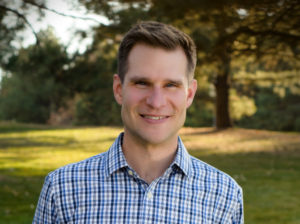Podcast: Play in new window | Download | Embed
Would you rather read the transcript? Click here.
How many kids have you seen over the last few years with rule-outs of both ADHD and autism spectrum disorder? If you’re anything like our practice…hundreds. These are the two most common referral questions in our practice, yet they’re also challenging to tease apart. Dr. Caroline Buzanko returns to the podcast for part 1 in a discussion of differentiating ADHD & ASD. In this first part, we discuss:
- Why it’s important for clinicians to tease these apart
- Neuroanatomical similarities and differences between the two
- The overlap and differentiation of “Part A” ASD symptoms from ADHD symptoms
Cool Things Mentioned
Featured Resource
I am honored to partner with PAR for 2021 to bring you featured items from their catalog! Listen to each episode for specific product recommendations and links. Learn more at www.parinc.com.
The Testing Psychologist podcast is approved for CEU’s!
I’ve partnered with At Health to offer CE credits for podcast episodes! Visit this link to access current and past episodes available for CE credit. You can use code “TTP10” for a discount on ALL the course credits you purchase from At Health!
About Dr. Caroline Buzanko

Dr. Caroline Buzanko is a Psychologist. Mother. International Speaker. Yoda of anxiety. ADHD Superhero. And Changer of Lives. With over twenty years working with children, teens, and their families, her focus is on developing long-term success and maximizing their resilience. She also trains other mental health professionals and educators to optimize their effectiveness conducting psychological assessments and working with children and teens.
Get in touch:
Website: https://drcarolinebuzanko.com/
LinkedIn: https://www.linkedin.com/in/dr-caroline-buzanko/
Facebook: https://www.facebook.com/DrCarolineBuzanko/
Instagram: https://www.instagram.com/dr.carolinebuzanko/
Overpowering Emotions Podcast: https://podcasts.apple.com/ca/podcast/overpowering-emotions-podcast-helping-children-and/id1618828819
About Dr. Jeremy Sharp

I’m a licensed psychologist and Clinical Director at the Colorado Center for Assessment & Counseling, a private practice that I founded in 2009 and have grown to over 20 clinicians. I earned my undergraduate degree in Experimental Psychology from the University of South Carolina before getting my Master’s and PhD in Counseling Psychology from Colorado State University. These days, I specialize in psychological and neuropsychological evaluation with kids and adolescents.
As the host of the Testing Psychologist Podcast, I provide private practice consulting for psychologists and other mental health professionals who want to start or grow psychological testing services in their practices. I live in Fort Collins, Colorado with my wife (also a therapist) and two young kids.
Ready to grow your testing services? Click below to schedule a complimentary 30-minute pre-consulting call!


Comments 6
I appreciate hearing about the clarity when teasing out the differences between ADHD and autism.
If you spoke with the same understanding and empathy for autistic people that you do for ADHDers, I would feel comfortable with this podcast.
If you listen back and switch the words autism and ADHD, perhaps you will hear it.
I heard autistic people othered again
Author
Thanks for sharing this perspective – it’s definitely stuck with me.
Dr. Sharp — I have enjoyed your episodes, especially the ones differentiating diagnoses. In the school psych world, we often hear about evaluators struggling between identifying between Intellectual Disability and Autism (due to overlapping characteristics or AU students with low IQ). I would love to hear your input on this topic, or additional episodes that involve school psychology. Thanks for all you do.
Author
Thanks for the feedback – this is definitely a great idea for an episode!
There is some very interesting content here, but I was about to tear what little hair I have out over the constant use of the word “kiddos”. We autistic & ADHD folk are all ages (some late-diagnosed; some diagnosed early but who have shockingly grown up), and the continued use of “kiddos” over and over and over just reinforces the present stigma that these are childhood conditions, not conditions to be navigated at all ages.
Author
Great point!